Homestay Owners’ Convention 2025 Showcases Transformative Potential of Community-Based Tourism
A silent revolution is taking root in the remote hills and valleys of Arunachal Pradesh, where homestays are emerging as powerful engines of economic empowerment, cultural preservation, and sustainable tourism -led predominantly by women.
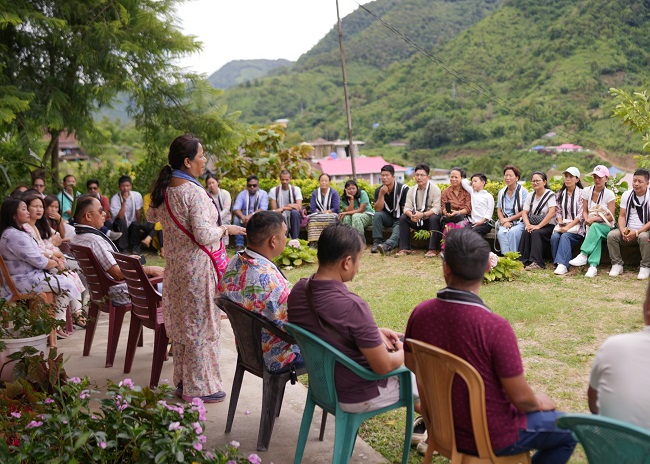

In districts across the state, homestay ventures offer a sustainable and dignified alternative to government jobs, connecting tradition with tourism. These businesses, primarily run by women, are not just a source of income but also symbols of cultural preservation. They help keep centuries-old traditions alive while welcoming guests from across India and abroad.
The recently concluded Homestay Owners’ Convention 2025, held at the DK Convention Centre in Itanagar from July 24 – 25, brought together over 200 homestay operators, tourism professionals, and grassroots entrepreneurs from 21 districts across the state.
A Platform for Shared Learning and Vision Building
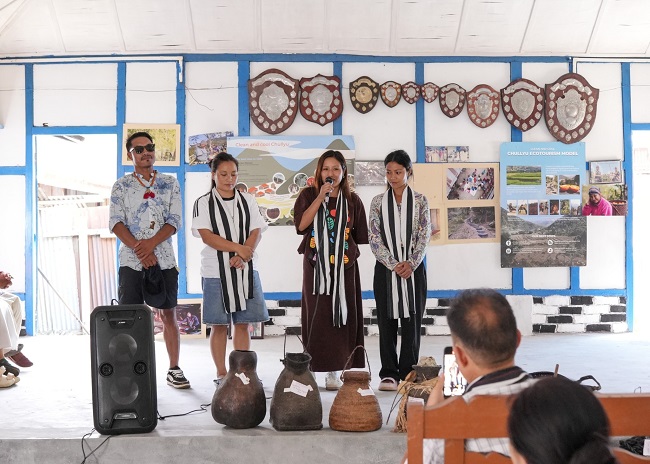

With the theme “Empowering Homestays”, the two-day convention was inaugurated by MLA Oken Tayeng, Member of the National Tourism Advisory Council, who called for the development of model homestays that reflect Arunachal’s rich cultural and ecological diversity.
In her keynote address, Ms. Yashaswini B, IAS, the newly appointed Director of Arunachal Pradesh Tourism, emphasized the importance of capacity building, waste management, and stakeholder networking in transforming homestays into viable, resilient businesses.
Other key speakers included: Bengia Manna Sonam, Deputy Director, Department of Tourism; Raj Basu, Rural Tourism Advisor; S. Kar, Principal, Food Craft Institute; Prof. Arindam Chakrabarty, Rajiv Gandhi University and Koj Mama, Chairman, Arunachal Pradesh Birding Club
They collectively stressed the need for cultural integration, brand positioning, and community-driven tourism as tools to position Arunachal as a niche and sustainable destination.
Women Leading the Homestay Movement
Across Arunachal, women have emerged as the driving force behind this hospitality renaissance.
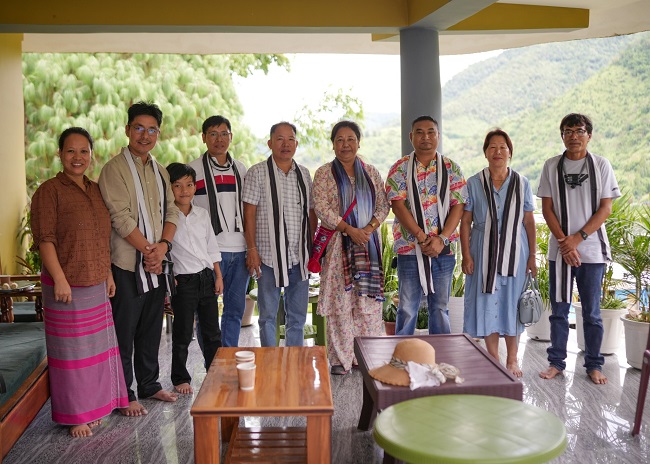

Ms. Sang Droma, from Bomdila in West Kameng district, is a leading example, who runs two successful properties – Dirang Boutique Cottages and Bomdila Embassy Homestay, has built a reputation among travelers. “Homestays have become a game-changer for women like us. With minimal investment, we are not only earning but also promoting our traditions,” said Droma. This venture can be started with less capital and can be gradually expanded. Her properties offer more than just accommodation; they provide an immersive cultural experience where guests can participate in local festivals and learn about customs.
In Ziro, Lower Ms. Subansiri district, homemaker-turned-host Ampee Rubu shares a similar story. Her homestay, Lempia Ude, launched in 2023, attracts both domestic and international visitors who enjoy tribal cuisines. “It is a good venture for homemakers like us as we come in contact with different types of people from whom we can learn about their culture,” Rubu noted. “I meet people from all over the world. They love our tribal cuisine and stories. This work has made me more confident and connected,” she shared.
In the border district of Tawang, Ms. Nima Dolma’s Palmo Homestay has become a favorite among international tourists. Dolma integrates traditional Monpa lifestyle experience, complete with monastery visits, fermented foods, traditional attire and storytelling. “Homestays are not just about rooms – they’re about stories, heritage, and pride,” and “Our guests love our fermented foods,” she said. More importantly, she believes homestays are giving young people a reason to stay in their villages instead of moving to cities for work, “It’s about reclaiming confidence in our roots.”
Community and Government Support
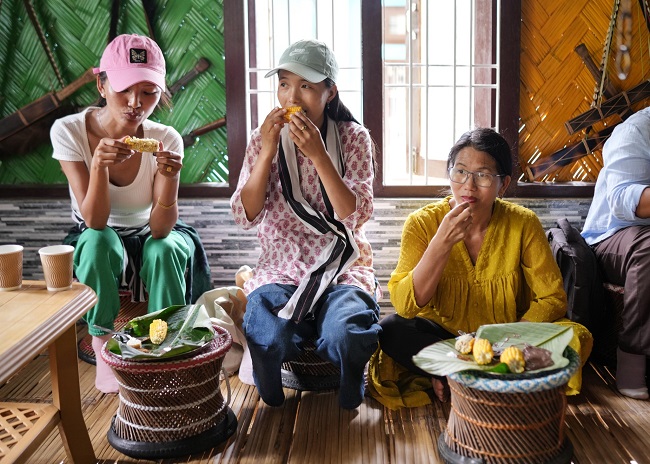

The movement is gaining momentum in places like Thembang, a village with fortified stone houses on UNESCO’s tentative heritage list. From Tawang, Nima Dolma of Palmo Homestay offers guests an authentic In the UNESCO-listed heritage village of Thembang, homestays led by women are rooted in sustainability. “Tourism has shown us that our lifestyle is valuable, not just to visitors, but to ourselves,” said host Rinchin Dorjee.
Meanwhile, in West Siang district, Mr. Liduk Ete has created a premium offering – Reyi Homestay in Aalo – that regularly hosts high-profile guests, including ministers and dignitaries. “We blend local hospitality with comfort and quality. Our orchard produces the organic fruits we serve,” he noted.
Here, and in the nearby village of Shergaon, the tourism model emphasizes community participation and sustainability. This includes discouraging plastic, promoting solar lighting, and sensitizing visitors to local customs.
“Tourism has shown us that our lifestyle has value, not only to outsiders, but to ourselves,” said Mr. Rinchin Dorjee, a homestay owner from Thembang.
Recognizing this potential, the Arunachal government has introduced a new policy to support these ventures. Tourism Minister Mr. Pasang Dorjee Sona announced plans to provide incentives and partner with booking platforms like Airbnb and MakeMyTrip to boost visibility.
Policy Support and Future Roadmap
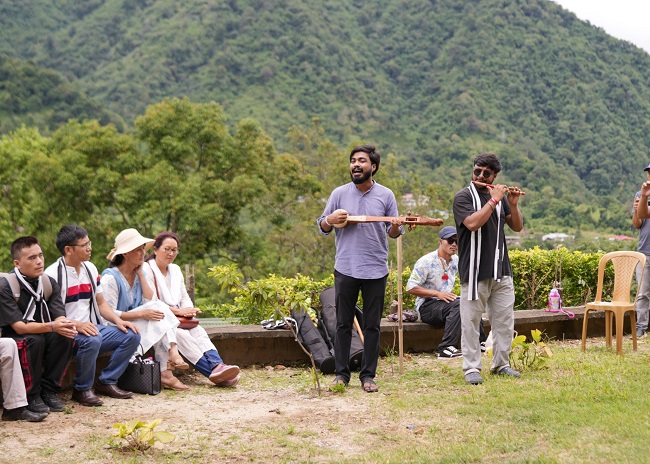

Recognizing the socio-economic and cultural impact of homestays, Tourism Minister Mr. Pasang Dorjee Sona announced a policy to incentivize well-performing homestays and partnerships with platforms like Airbnb and MakeMyTrip to boost visibility.
“Homestays are no longer peripheral – they are central to our tourism development strategy,” he said.
Ms. Yashaswini B echoed this sentiment: “Arunachal’s unique blend of nature, culture, and cuisine must be our unique selling proposition. We are working to support homestay owners with training, branding, and marketing support.”
From the lush hills of Ziro to the historic walls of Thembang, homestays are redefining tourism in Arunachal Pradesh as more than just a business—they are a celebration of identity and shared human stories.
Convention Takeaways: Collaboration, Sustainability, and Community Pride
The theme of the two-day convention, held on July 24-25, 2025, at the DK Convention Centre in Itanagar, was “Empowering Homestays.” The event brought together homestay operators and tourism officials from all 21 districts of Arunachal Pradesh. The convention featured interactive workshops, success stories, and sessions on hospitality, cultural storytelling, and responsible tourism. The discussions collectively emphasized the importance of cultural integration, branding, and community empowerment to position Arunachal Pradesh as a niche, sustainable tourism destination. It concluded with a strong call for community-based tourism models rooted in mindful travel, environmental care, and cultural respect.
After the convention, a group of 30 participants visited Chullyu Agro-Tourism Village, where they experienced an “Orange Trekking Trail,” toured a community museum, and engaged in discussions on responsible tourism, underscoring how tourism, culture, and nature can be interwoven to support local communities.
Post-Convention Visit to Chullyu Agro-Tourism Village
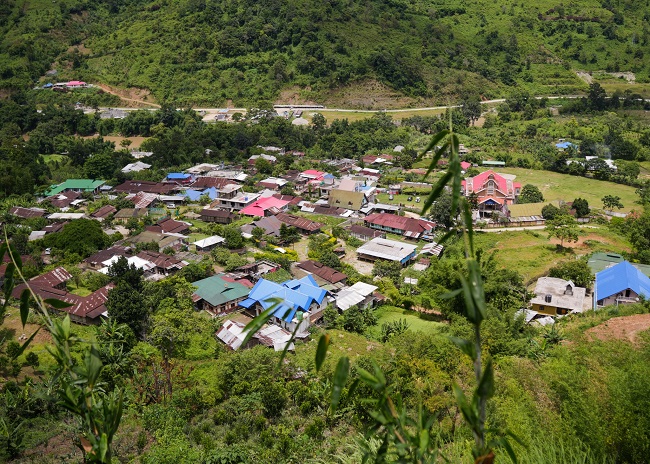

As part of the post-event immersion, a delegation of 30 homestay owners, artists, and tourism stakeholders visited Chullyu Agro-Tourism Village in Keyi Panyor district. Hosted by the Ngul Chullyu Organisation, the visit included: A guided trek through orange and pineapple farms; A tour of the Chullyu Community Museum; A traditional organic lunch and cultural exchange and A live folk music performance by Lokodariya (Kolkata).
The visit showcased how agriculture, culture, and tourism can harmoniously support rural economies while preserving identity and nature.
The Road Ahead
From the sacred monasteries of Tawang to the tribal heartlands of Ziro and the living heritage of Thembang, homestays are no longer just accommodation – they are an expression of Arunachal’s soul. With empowered women at the helm, Arunachal’s homestay movement is not only transforming tourism but also nurturing pride, resilience, and economic independence in remote communities.
As one delegate aptly summarized: “We are not just hosts – we are storytellers, entrepreneurs, and guardians of our heritage.”
